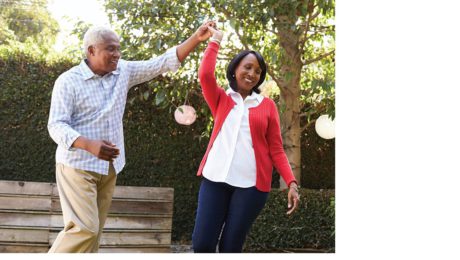BENEFITS OF YOGA HEALTH
POSITIVITY AND HEALTH
“Optimism is the most important human trait, because it allows us to evolve our ideas, to improve our situation, and to hope for a better tomorrow.” – Seth Godin [American Author]
HEALTH
Our minds are powerful tools for creating health and wellness. While studies haven’t identified precisely why positive people are healthier, researchers suspect that it is because people who are more positive process stress better and move through hard situations more easily. Negative attitudes and feelings of helplessness can create chronic stress, which can, in turn, damage the immune system. Anger and hostility are related to health conditions such as high blood pressure, cardiovascular disease, digestive disorders, and increased instances of infection. Surprisingly, the tendency toward a positive or negative outlook does have a genetic component. However, this doesn’t mean that people can’t improve their outlooks. Some tips to improve your outlook include:
- Smile more. Even fake smiling can reduce heart rate and blood pressure during stressful situations.
- Practice reframing. Instead of stressing about a current situation, try to find a positive aspect to it.
- Build resiliency. Having friends and family nearby to share the situation with, accepting that change is a part of life and finding new ways to adapt, and feeling like you have the control to change the current situation are all ways to embrace whatever life throws your way.
- Share your feelings. Often, we spend too much time in our heads. Sharing our feelings with a trusted other can help find a different way to look at a situation. If others are mired in their current negative situations, encourage them to share their fears.
Source: Johns Hopkins Medicine. University of Minnesota, and University of Wisconsin Health
While loved ones might resist the idea of optimistic thinking, there are health reasons to ask them to reconsider. Positive thinking can lead to:
- Better sleep
- Increased life span
- Lower levels of distress
- Lower rates of depression
- Greater resistance to the common cold
- Better cardiovascular health
- Better coping skills during extreme hardship
Tips for Creating a More Positive Outlook
- Get better sleep.
- Take a walk outside.
- Follow a healthy lifestyle.
- Practice positive self-talk.
- Surround yourself with positive people.
- Be open to humor or create a place for smiling and laughing every day.
- Consciously work on experiencing three positive emotions for every negative one.
- Actively evaluate your self-talk at various points during the day to see how you’re doing.
Source Mayo Clinic and University of Wisconsin Health
Powered by WellSky
POSITIVITY AND HEALTH
HEALTH
Are you a negative or positive thinker?
Listen to your own self-talk- that endless stream of unspoken thoughts that goes through your head. Some forms of negative self-talk to watch out for include:
- Filtering. This means magnifying the negative aspects of a situation and not acknowledging the positive. For example: Your loved one had a good night’s sleep, a fun phone call with their grandchild, and took a walk on a beautifully sunny day outside. But then they tripped and fell with minor injuries. At the end of the day, did they say it was a “bad” day because of the fall or a “good” day because of the rest?
- Personalizing. When something bad occurs, you or your loved one automatically takes the blame. Sometimes no one is to blame.
- Catastrophizing. You or your loved one uses language that makes things out to be much worse than they are, or assumes that because one bad thing happened, it’s all downhill from there. Single events in the day are rarely the “worst” or “most horrific.”
- Polarizing. You or your loved one sees things as either good or bad and not the huge gray area in the middle. This leads to feeling like one is only perfect or a failure; healthy or dying tomorrow, capable or completely incapacitated.
If you are seeing these tendencies in your loved one, you should take care to address the subject, as they are more likely to see it as an attack and apply all of the above thought processes to that interaction.
Source: Mayo Clinic
Positive Self-Talk
- Affirm daily what is good about you.
- Remove the words “never” and “always.”
- Express gratitude – either aloud or in your head.
- If you make a mistake, take a moment to forgive yourself.
- Don’t say anything to yourself that you wouldn’t say to someone else.
Source: Mayo Clinic
Powered by WellSky
- Published in IN HOME CARE
Asthma
Asthma
Did you know that, while our brain is only about 2% of our body mass, it consumes 20% of the oxygen that we breathe in? Just 5 minutes without oxygen can cause noticeable brain damage.

What is Asthma?
Did you know that, while our brain is only about 2% of our body mass, it consumes 20% of the oxygen that we breathe in? Just 5 minutes without oxygen can cause noticeable brain damage.
Asthma is often characterized by coughing, wheezing, shortness of breath, and chest tightness or pressure. According to the CDC, 1 in 13 people suffers from asthma. It is characterized by the inflammation of the bronchial tubes in your lungs with increased production of mucus. This causes less air to be taken in, with less oxygen to be distributed throughout the body.
Asthma can be hereditary, so it is beneficial to know family health history. It is also connected to other allergic conditions like atopic dermatitis or hay fever. If your loved one is prone to allergic reactions and begins to have trouble breathing, have a doctor determine if they have developed asthma as well. Asthma is more commonly seen in adults with occupations that subject them to airborne chemicals, such as those used in farming, salon work, or manufacturing.
How to Control Asthma
- Prescription drugs
- Monitor lung capacity with regular doctor visits
- Use a Peak Flow Meter at home
- Develop an asthma action plan with your doctor
- Use a rescue inhaler or nebulizer when necessary
- Stop smoking and vaping
- Exercise regularly to maintain a healthy weight and help with breathing
Common Asthma Triggers

Asthma Attacks

While they may generally have trouble breathing, people who suffer from asthma are most concerned with preventing an attack, a sudden onset of severe symptoms. Early signs of an attack include:
- Frequent cough, especially at night
- Losing their breath easily or shortness of breath
- Feeling very tired or weak when exercising
- Wheezing or coughing after exercise
- Feeling tired, easily upset, grouchy, or moody
- Signs of a cold or allergies (sneezing, runny nose, cough, nasal congestion, sore throat, and headache)
- Trouble sleeping
If your loved one has an asthma action plan, generally including an inhaler and breathing treatments, it is critical to intervene during these early symptoms. If you notice that the inhaler is needed multiple times a day or becomes a challenge for your loved one, talk with the doctor about alternatives such as a nebulizer or oral medications. The attack can also include some or all of the following:
- Severe wheezing when breathing both in and out
- Very rapid breathing
- Chest pain or pressure
- Tightened neck and chest muscles, called retractions
- Coughing that won’t stop
- Difficulty talking
- Feelings of anxiety or panic
- Pale, sweaty face
- Blue lips or fingernails
Gradually, the lungs will tighten so there is not enough air movement to produce wheezing. It is at this point that hospital intervention is critical. Some people interpret the disappearance of wheezing as a sign of improvement and fail to get prompt emergency care.
Who Does Asthma Affect?
Asthma can affect children and adults. Symptoms are typically more intermittent in children and persistent in adults.
Unfortunately, adult-onset asthma has a higher death rate than childhood asthma. This is perhaps because symptoms are ignored by the adult or their caretakers and attributed to weight or just a regular part of getting older. Do not ignore wheezing or coughing, especially if it seems chronic. It is important to seek medical advice to ensure that shortness of breath is not something more serious. Some of the factors that might increase the risk of adult-onset asthma may include:
- Being overweight
- Pregnancy or menopause
- A buildup of allergens such as cats, cigarette smoke, chemicals, mold, or dust
Childhood asthma will often go into remission for a decade or so then return in a person’s 30s or 40s. Remember that asthma does not have a cure. It is important to maintain the medical relationships and awareness throughout your lifetime.
- Published in IN HOME CARE
New Year Goals
NEW YEAR’S GOALS
ACTIVITIES
For older adults, making a New Year’s resolution can be a symbol of hope. [cite: 1, 2] Resolutions are a sign to their inner selves that they believe they will be around for the coming year to enact those changes. [cite: 2] The word “resolution” has gotten a stigma as something that people start on January 1st and break on January 2nd. [cite: 3] Calling a resolution a goal might help everyone get out of the mindset that these are things you say only New Year’s Day. [cite: 4, 5] Goals can be set any time. [cite: 5] You can help your loved one create some measurable goals for the coming year. [cite: 5, 6] In fact, helping them reach their goals might be a goal for yourself!
Make goals bite-sized and measurable. [cite: 7] For example, instead of saying “lose weight,” set smaller monthly goals to eliminate one poor eating choice from your diet or add one extra daily activity. [cite: 7, 8] Losing weight will be a product of those goals, but not the goal itself. [cite: 8]
Goals don’t have to be boring! [cite: 9] Especially as we age, there are legacies to be passed down. [cite: 9, 10] Consider asking your family members to sit down with you (even virtually) each week to pass down recipes, stories, and lessons they’ve learned throughout their lives. [cite: 10, 11] This can be a great family activity that feels less like a resolution and more like the right thing to do. [cite: 11, 12]
Source: Philips Lifeline and American Psychological Association
Personal Goals
- Cleaning and Sorting – As we move through life, it’s easy to amass items that just don’t serve us anymore. [cite: 13] As organizational expert Marie Kondo says, keep only those things that spark joy. [cite: 13] Our homes should be a haven. [cite: 13, 14] That old vase you picked up in a thrift store on a whim, which is out only to be dusted, can probably go to someone who might value it more. [cite: 14, 15]
- Technology – Video chats with family members can ease loneliness and allow us to keep an eye on them. [cite: 15, 16] Add a form of digital music, which has been proven to help with mental acuity and emotional happiness. [cite: 16, 17] Teaching your loved one how to email or text will allow them to connect with their peers more easily. [cite: 17, 18]
Source: Philips Lifeline
Inspiration
Hubert Jones was 69 when he founded the Boston Children’s Chorus, which includes young people of different ages, races, ethnicities and socioeconomic backgrounds. [cite: 19] Its mission combines artistic excellence and an agenda for social change. [cite: 19]
Source: US News and World Report
NEW YEAR’S GOALS
ACTIVITIES
Health Goals
- Exercise – Increasing exercise can be as simple as getting your loved one a pedometer and a goal for a certain number of steps each day. [cite: 20, 21] You can make it a competition, if that is something they’d enjoy, or a reward system where they earn something for achieving the daily goal. [cite: 21, 22]
- Medications – As we age, there are an increasing number of medications to keep track of. [cite: 22, 23] A worthwhile goal is to take an annual look at the medications in your loved one’s home. [cite: 23, 24] Check to see that none are expired and there aren’t duplicates or varied dosages. [cite: 24, 25]
- Vaccinations – If vaccinations are not on the annual schedule, it’s a good time to make sure that your loved one is up to date on the ones their doctor might recommend, such as flu, pneumonia, and shingles. [cite: 25, 26]
Source: Medical Alert Advice
Financial Goals
- Legal Documents – While it seems like setting up a will or trust or other legal decisions might be a “one and done,” it is useful to review these documents annually. [cite: 26, 27] The people designated in these documents may no longer be in our lives or in a position to take on any responsibilities mentioned. [cite: 27, 28]
- Bills – A great goal for a new year is to consolidate debt and to set up a plan for paying bills more efficiently. [cite: 28, 29] Scattered accounts can lead to financial mistakes and even fraud. If your loved one isn’t using autopay or bill pay systems, you can work with them to learn how to manage finances online. [cite: 29, 30] If they are uncomfortable with the prospect of taking their account management online, a first step can be to set up smaller accounts, like utilities, to get them used to the process. [cite: 30, 31]
Source: US News and World Report
Inspiration
Nola Ochs became the oldest college graduate at 95 and lived to 105. [cite: 31, 32] After graduation, Princess Cruises hired Ochs as a guest lecturer on a nine-day Caribbean cruise. [cite: 32] Ernestine Shepherd is an American bodybuilder best known for being, at one point, the oldest competitive female bodybuilder in the world. [cite: 32, 33] She will be 84 this year and is still an active bodybuilder. [cite: 33, 34]
Source: US News and World Report
- Published in IN HOME CARE
DANCE FOR HEALTH
- Published in IN HOME CARE
SEARCH
SEARCH
Privacy & Legal
Let's Get Social





